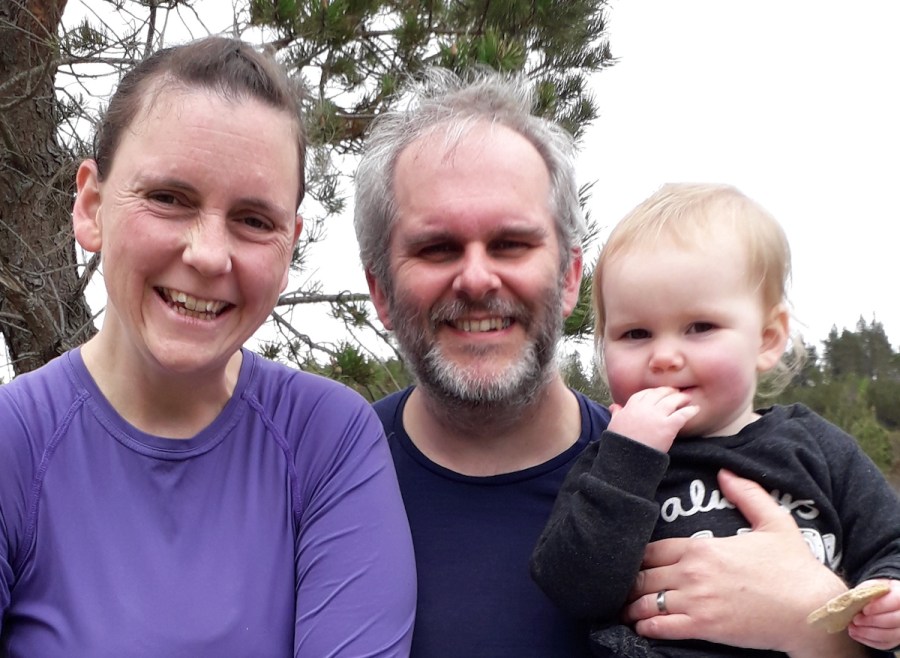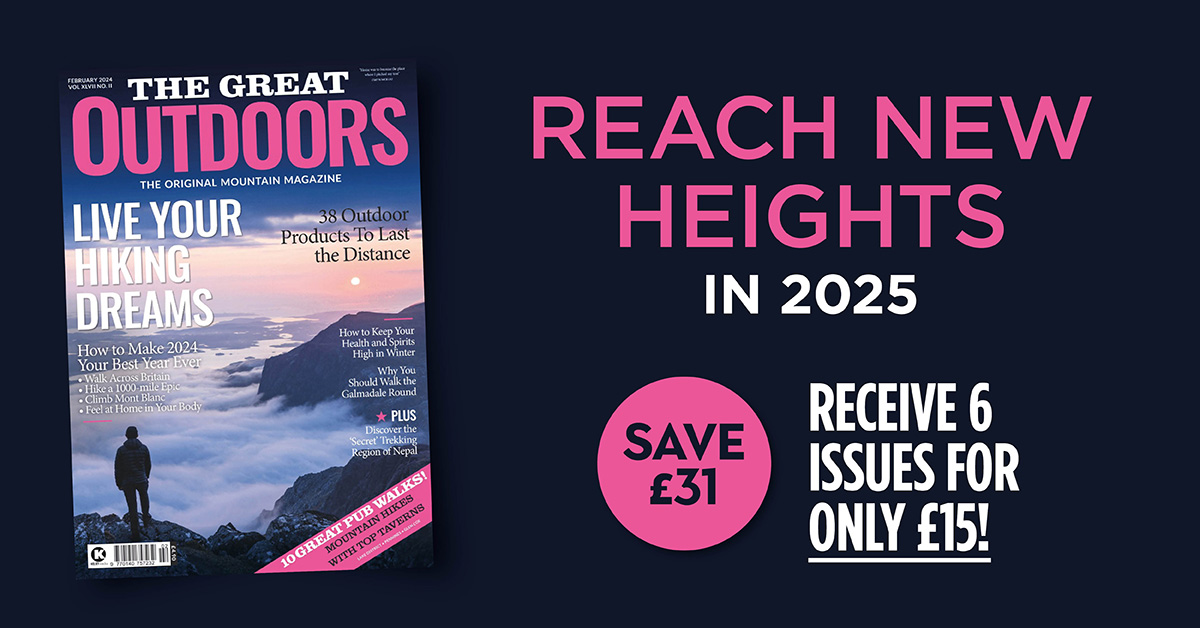The hostel sector is facing an unprecedented crisis. Here, independent hostel owners share their stories.
Few businesses have been so devastatingly impacted by COVID-19 as hostels. With communal facilities and shared dorms off-limits, many have been forced either to adapt to an unsustainable ‘hotel’ model or to close completely.
Last month, we revealed that a large part of the independent hostel sector will disappear without further government support. Here are the stories behind the statistics.
“I’m half capacity with extra debt”
Ruth Bradley, Acheninver Hostel, nr Ullapool
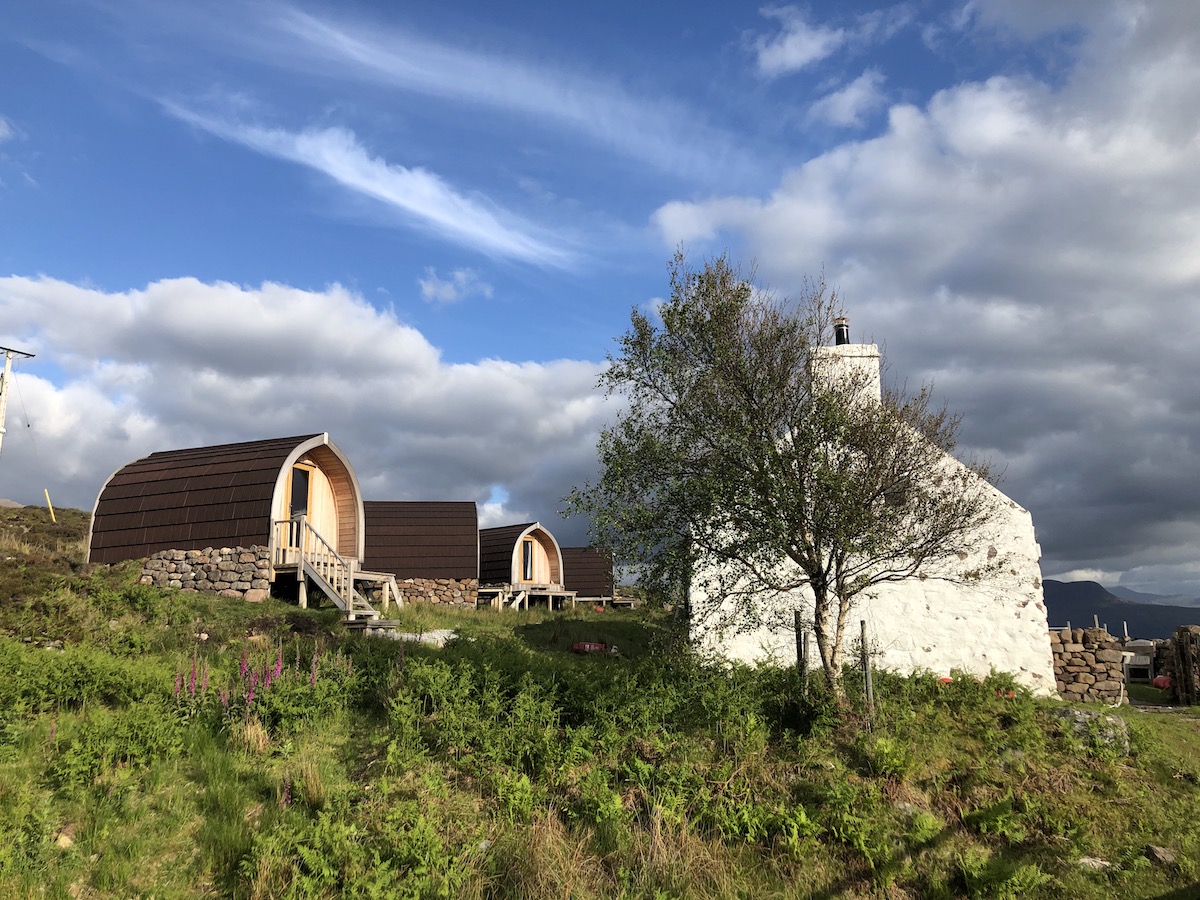
“What’s been really difficult for the whole time is the uncertainty. We were never sure when we were going to close, how long we were going to be closed, what the conditions were going to be when we opened or what the health and safety requirements were going to be.
“I had maybe 40% of the summer booked out before the pandemic even started. It’s been a constant series of renegotiating our service agreement with guests. Yes, we got a government bailout – but that £10,000 grant was spent in three days just refunding the booking deposits for the summer. Just like everyone else on the West Coast, we don’t have a 12-month season. We take in booking fees, and we use them to renovate the place during the winter and get ready for the season. We spent the money and then found out we had to give it all back.
“I think I’m not alone in being one of the businesses in the Highlands that has developed in the last 2.5 years to service the North Coast 500 boom. This has been a hostel for 82 years and when I took over in 2016 it was basic – like a mountain bothy. In order to make a living I needed it to be a livelihood and have a suitable place for myself and my kids to live onsite. So I invested in building wooden sleeping pods. That was a good investment at the time but it means I’m locked into debt repayments every month. That would normally be totally doable, but because of the pandemic it’s creating massive financial pressure.
“So I’m not just thinking about how to stay safe and how we operate, I’m also wondering how I make it until next February when the season picks up again. I’m really lucky I did build those pods because I’m able to sell them as self-contained units. I’ve closed the old hostel and there’s no communal kitchen. I’m half capacity with extra debt.
“There’s this general perception that, as a business owner, you just want to get back to opening. But my partner has a heart condition, I live here with my kids, I live in a very remote village and I don’t want to be the one to bring community transmission to the village. I’m a trained scientist and pretty fluent in COVID-19, so it’s difficult to be in a situation where I’m running a business that’s increasing the exposure risk in the Highlands. It doesn’t feel great. But I can’t afford not to be opened.
“If there’s second wave or if we have a continuing series of lockdowns, I think instead of a blanket grant what would be a good thing would be a turnover top-up. Nobody wants to make a profit from the government, of course, but I don’t want to go bust either.
“I feel like what I’m going to have to do is be mentally resilient and not overly think about the future. Suddenly I’m open, I have no staff because I’m trying to keep a tight ship, I’m cooking dinners for people to add an extra layer of protection for the community. I just have to focus on working until October and then see if I’ve got enough money to see it through.”
“I have decided that I am not going to try to open this summer”
Jillie Gardiner, Gilfach Wen Barn bunkhouse, Carmarthenshire
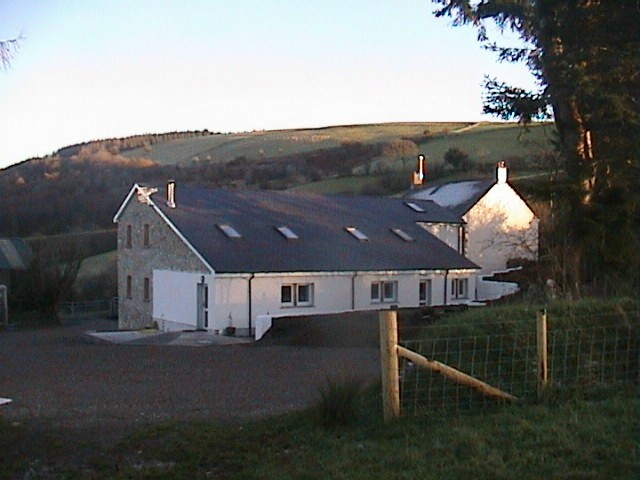
“About a week before the government announcement that tourism businesses had to close I was watching the news coverage about COVID-19 and decided that I should contact all of the groups booked for 2020 and offer them the option of changing dates or cancelling their booking. With the exception of three groups who were planning birthday or wedding anniversary celebrations, all of the groups decided to move their booking to a new date.
“I was really pleased when I heard the announcement from the Welsh government that self catering tourism businesses could reopen. Unfortunately, while the UK and Scottish governments both published guidance – including how many households could share accommodation – within a few hours of announcing that self catering tourism businesses could reopen the, Welsh government did not. I tried searches online, contacting the Welsh Government, even writing to all the AM’s that represent this area in the Welsh Parliament asking for assistance in finding out this key information, but apparently it was Welsh Government policy that they were just providing advice that we could prepare to open, and there would be no confirmation that we could open or what the rules would be until a couple of days before the date that guests could stay.
“The UK Government permits two ‘bubbles’ to stay in one self catering unit in England, but the Welsh Government rule is a single extended household (bubble). The Welsh Government was also slower to allow pubs, cafes and restaurants to reopen than England.
“It was only on the 3rd of August that they allowed customers to enter the premises, but the two-metre separation between households still applies.
“I feel if the rules were the same as those for England it would be practical for me to open, but under the Welsh rules my guests would not have the experience they have come to expect. All of my regular bookings are from extended families and groups of friends, so none of the advance bookings could take place. Gilfach Wen Barn does make an excellent base for exploring South West Wales. It’s only a short drive to the many beaches in Carmarthenshire, Pembrokeshire, Ceredigion or to the Brecon Beacons National Park. However, many of the guests booking to stay here look forward to the opportunity to head out for a walk through Brechfa Forest and over Llanllwni Mountain, calling into a pub for lunch or the village stores to buy local produce for a picnic.
“The combination of traditional rural pubs and two-metre separation means that landlords are having to run an appointment system. So the experience of a gentle stroll through the forest focusing on the wildlife without having to clock watch is not available to guests.
“Meanwhile, the village stores is a community run enterprise manned by volunteers and they have had to reduce their opening hours as so many of the volunteers have been in the shielding category.
“This community is one of only six in Wales to have received support from the Welsh Government and HRH the Prince of Wales for a project linking an appreciation of the landscape and our forest-based culture with building a strong local economy. I am the chair of the Brechfa Forest and Llanllwni Mountain Tourism Cluster Association, and earlier this year we successfully obtained grant funding to produce leaflets and online resources to increase the range of options for walkers, cyclists and horseriders to plan different routes through the forest and over the mountain to link to the pubs, restaurants, cafes and craft workshops in the 15 villages and communities which encircle Brechfa Forest and Llanllwni Mountain.
“This is a project that is really dear to my heart. I have decided that I am not going to try to open this summer, but instead I am going to work on this project so that when I can reopen I can provide guests staying with me with an even more special package of walks and rides through this ancient forest and also help other small businesses including other tourism businesses in the community recover from lockdown.”
“The regulations make it too difficult for a hostel to operate as a hostel.”
Christine Macintosh, Heb Hostel, Stornoway

“Hostels have been hit particularly hard by this crisis – hostels being a place of communal living, a home away from home where you share facilities and make new friends. The regulations, understandably, make it too difficult for a hostel to operate as a hostel.
“If it had not been for the government support I have received so far and help from family and friends, I would have had to close by now.
“We have the added difficulty of having an old C-listed building so any type of physical changes are problematic.
“Our rooms are large (three of our rooms accommodate seven-nine persons) and only one is ensuite.
“We have a shepherds hut (double) without cooking facilities in the garden and a shower/wc in our laundry room so we have managed to make this available within the regulations. However, the guests cannot enter the hostel building, so have no cooking facilities or social area and we have also had to withdraw our drying room.
“We have also opened one dorm for exclusive use (again without any of the shared facilities) and after a few bookings this week have quickly realised that one night stays are not sustainable with all the cleaning that is required.
“Unfortunately, most of our customers are one- or two-night stays (many walking or cycling the Heb Way or island hopping) and a lot of them are also individuals or small groups.
“All of the enquiries we are receiving are from our usual customer base, but as we cannot have shared rooms, one person in a seven-bed dorm for one night is not worth it. We would be better to close than to offer a room for £20 and one person is not going to pay £140 to be the only person in a seven-bed dorm.
“Even setting a minimum of £50 for the room hasn’t stacked up for us this week if it is only for one night.
“August is normally our peak month and we can accommodate up to 30 people per night. This week we have accommodated 22 spread over the week.
“We usually make our money over the summer months to carry us through the winter so it is the period between the end of September and the beginning of April that I am the most concerned about.”
“It’s gonna be a tough winter but we will see you on the other side.”
Lee Strickland, Cohort Hostel, Cornwall
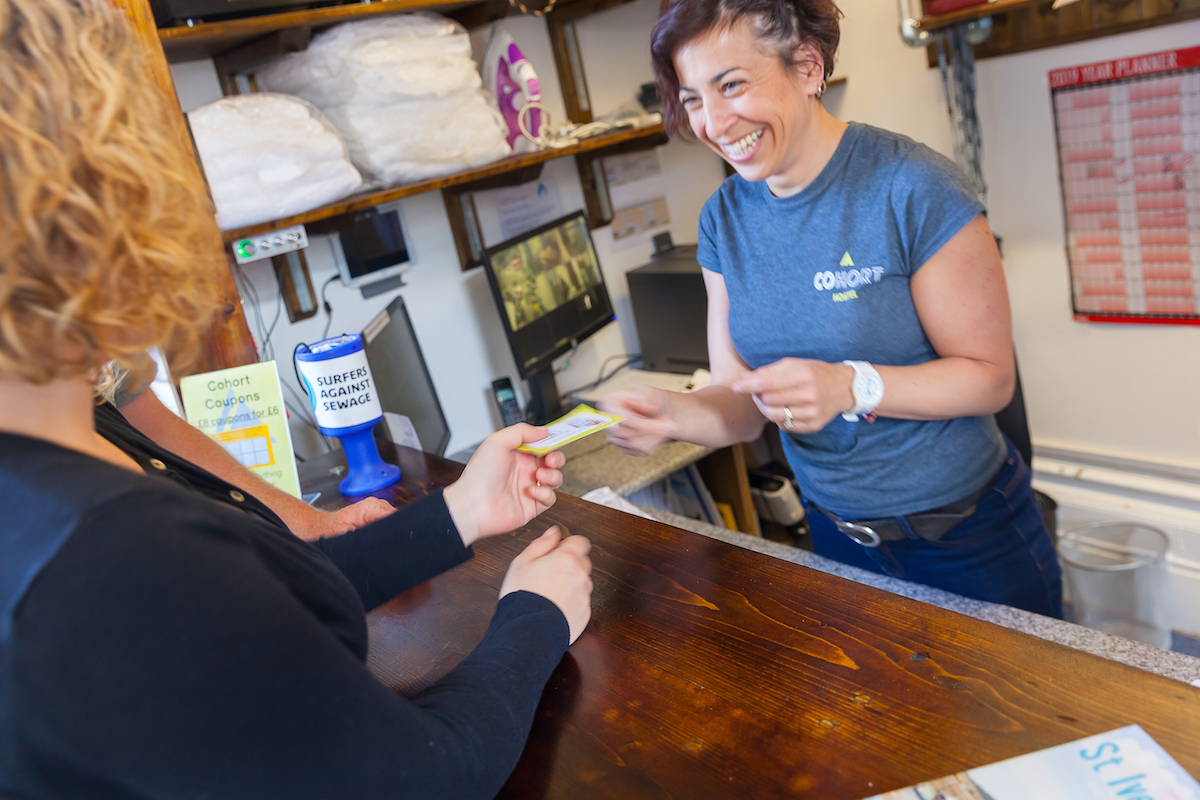
“’Right… you have to re-think the way your business operates from the bottom up; you have some time, maybe 3 weeks, maybe 6. It might be temporary… it might not. It may be that you have to work to 2m social distancing… it might be 1m. You will probably be able to open on 4th July, maybe not… maybe later; maybe some businesses will be able to open and that might be you but it might not: Either way make sure you are a fully trained social media expert, understand the contactless guest experience and can spot COVID-19 symptoms from at least 10 paces.’
“The above ‘quote’ was sourced from a variety of email newsletters (I receive roughly 10/day), BBC News, Hospitality UK, MP Facebook pages, YouTube videos, forums, et al.
“That seems manageable, right?! I mean, it only took us 5 years to get to where we are now so fair enough that it should take us around 3 weeks to pivot and offer a very different service.
“Oh.. and don’t forget it has to be marketed, staff trained, websites altered and rewritten, booking systems changed around, rooms re-named, pricing structure reconfigured, risk assessments undertaken, PPE bought and signage created.
“Good job we’ve been making such good money for the past few months. Oh, wait…
“Cut to three weeks and later and it’s currently going alright. Instead of 54 beds we now have nine rooms for between 1 and 6 people (pat on the back for us). The booking calendar is filling up as holidaymakers are gaining in confidence, no one seems too put out by the changes we’ve had to make in order to be Covid-secure, and all our guests just seem super happy to be in St Ives.
“So what am I missing? A ‘cohort’ is a gang of people having a shared experience; we named our hostel so because it was our vision for the place. Sociable, friendly, an experience in itself.
“I’m missing that. I’m missing the buzzy lounge in the morning when everyone comes in to get their tea and coffee. I’m missing people exchanging contact details in the lounge before departure because they met in the dorm and had an awesome night out. I’m definitely missing the odd guest who overcooks for breakfast / lunch / dinner and brings leftover food up to reception staff (it happens!)
“But it will be that way again, I’m sure of it and if willpower and sheer determination counts for anything, we will still be here! It’s gonna be a tough winter but we will see you on the other side.”
“We need visitors to understand hostels are just as safe as hotels and B&Bs – but cheaper!”
Dominique Drewe-Martin, Ballater Hostel, Aberdeenshire
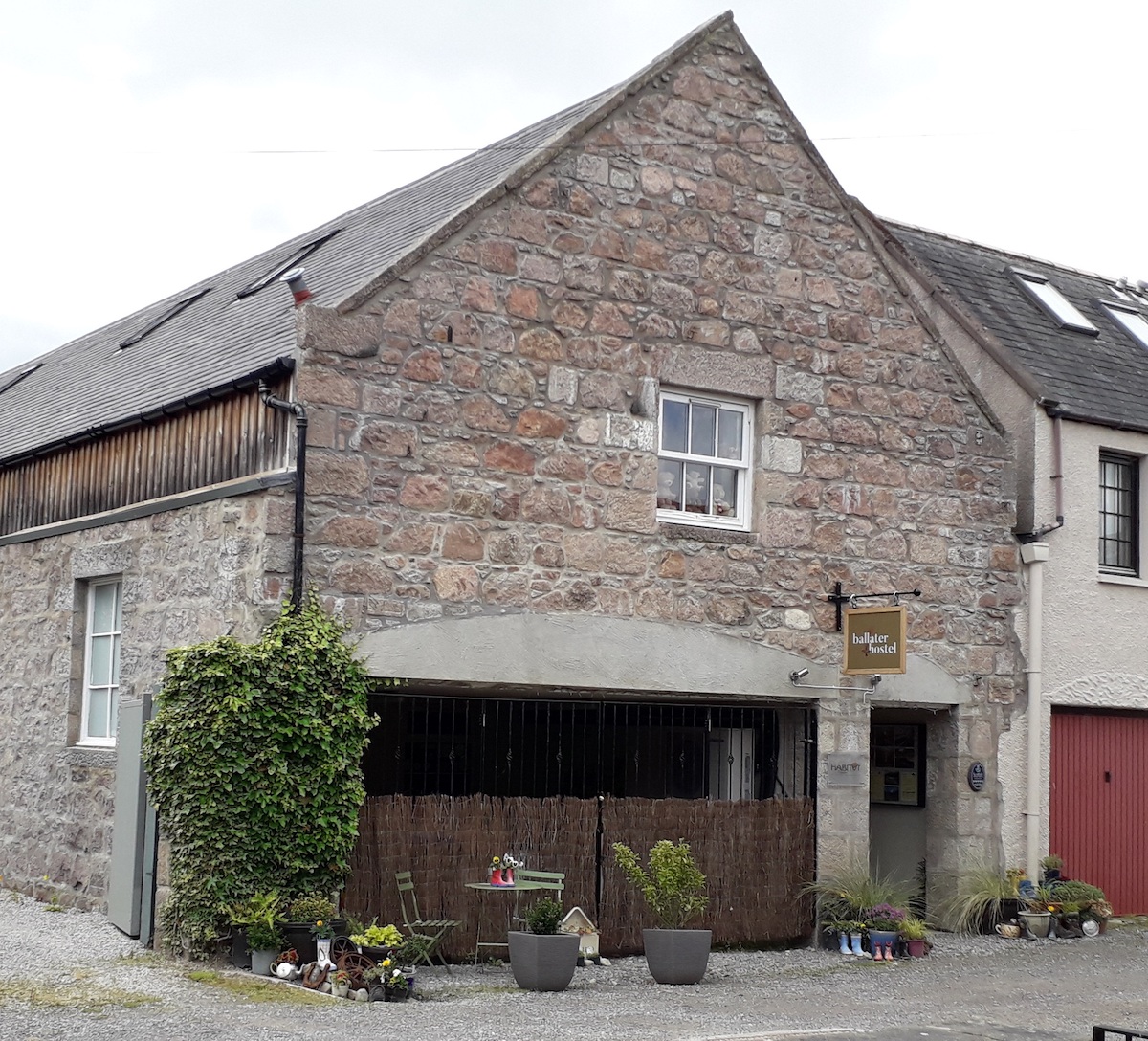
“Probably the biggest change is we are now acting like a B&B/hotel. As our communal areas are not large enough to allow physical distancing, as well as it being too disruptive for guests and time consuming for us to deep clean the kitchen in-between each guest’s use, we’ve closed all communal areas – kitchen, dining room, lounge and drying room. We are no longer a place where folk come to meet other folk, share stories, cook together in a self-catering kitchen, immerse themselves in the friendly environment with likeminded individuals. Guests don’t meet other guests. There’s no buzzing atmosphere. For those staying on their own, it’s lonely. There’s no comfy sofa to have a cuppa and peruse maps, planning your next day’s adventure. There’s no sound. There’s no atmosphere.
“We are being forced to move away from being a traditional hostel and become what we never intended to become and what many others in the village are already providing.
“We have lower occupancy. With social distancing in place our rooms are not large enough to accommodate more than one household. Thus, whereas before friends would have shared a room, they now need to book four rooms.
“We have twice as much cleaning. Even though we have halved our occupancy levels we’ve doubled our cleaning. Disinfecting everything in a room, washing every bit of linen on a bed, spraying duvets & pillows, wiping mattresses, preparing new tea trays (as we don’t have a self-catering kitchen). It is constant cleaning.
“We have lower income. We’ve personally felt that, as we are not providing our usual offering, we can’t charge the usual price. With no self-catering kitchen, drying room, lounge, dining room you can’t charge pre-corona prices. Thus, we dropped them. We also understand for those hostellers who just want a bed in a shared mixed dorm at a budget rate there is absolutely nothing out there for them at the moment. We are therefore (on top of reduction of prices) heavily discounting the majority of our rooms to enable these individuals to still have a place to stay. It is the hostel way to be open for all.
“So, we have less people, each of those people are paying less money, and each room they stay in takes twice as long to clean. It is not a lifestyle that can be continued long term.
“In numbers: for August we are looking at a 50% drop in the number of rooms sold (due to people not feeling confident about either coming out or staying in a hostel), a 65% drop in the number of people staying in the hostel (due to only allowing one household per room) and a 70% drop in income (due to dropping prices).
“The biggest struggle for us is that 70% of our annual income is taken during the six months of April to September. This then helps us see through the winter period. We haven’t just lost four months of trading between April and July – we’ve lost 67% of our main season, with the remaining 33% available potentially giving little or no income. Our low season is quiet and usually consists of group bookings from hillwalking groups and universities. Given the current restrictions neither group can stay, thus it is likely this year’s low season will be extremely quiet. We are having to rely on savings and money we had put to one side to buy a family home to see us through until the start of the next available season, in April 2021.
“We need visitors to understand hostels are just as safe as hotels and B&Bs – but cheaper! We are struggling to secure new bookings due to either people just not even considering a hostel as a place to stay at the moment, thinking it will be all shared facilities, or they want a private room/self-contained unit and the first place they think of is B&B/hotel. Hostels don’t come up on the radar.
“We would be very thankful for any kind of further financial support from the government to help see us through the winter months, to the start of the next season, to a time when visitors will feel more confident and numbers are higher.”
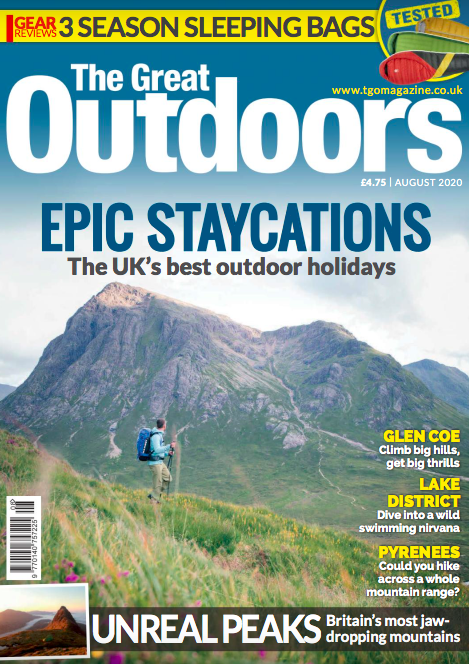 Subscribe to The Great Outdoors
Subscribe to The Great Outdoors
The Great Outdoors is the UK’s original hiking magazine. We have been inspiring people to explore wild places for more than 40 years.
Through compelling writing, beautifully illustrated stories and eye-catching content, we seek to convey the joy of adventure, the thrill of mountainous and wild environments, and the wonder of the natural world.
Want to read more from us?
- Get three issues of the magazine for £9.99, saving 30% with free UK home delivery.
- Take out a full subscription at just £15 for your first six issues.
- Order the latest issue and get it delivered straight to your door for no extra cost.
- Catch up on content you may have missed by buying individual back issues with free postage and packaging.

